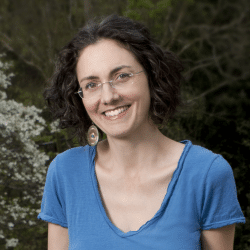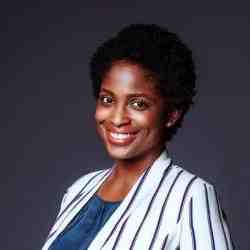Introdução
NeedsMap creates online and offline communities to disrupt the power dynamics in the aid sector by (1) creating transparent exchange processes through technology, (2) bringing together the benefactors and the potential donors in a peer-to-peer solidarity system, (3) activating local changemakers such as youth volunteers, dedicated teachers, hospital workers, village leaders to take their first step into tackling a social problem they face. In doing so, they tackle poverty-related problems across Turkey through their digital mapping system and the strong volunteer community.
A nova ideia
NeedsMap is known for its geolocation maps-based, peer-to-peer online tool that enables everyone to list their poverty-related needs at one stop and for others to respond to their fellow citizens’ needs via the same platform. In building this peer-to-peer transparent platform, the duo imagined a place where everyone is both a receiver and a donor. By breaking the existing power dynamics in donation processes, Ali Ercan and Mert aim to go beyond the existing roles in donation processes and create a sense of communal solidarity.
The online tool is combined with communities of local volunteers across the country who are helping the potential benefactors identify their needs better. These volunteers also help some elderly to learn how to use the platform and collaborate with the online community. Thousands of university students join NeedsMap volunteers every year to contribute to the journeys of rural teachers, neighbor groups, and health centers that are eager to make a difference if they are provided with goods. These volunteers also meet at their annual convention to share their learnings and new ideas with each other.
Bringing together the big data coming from the system and the insights of the young volunteers, the NeedsMap team is now able to advise government and aid organizations to help them plan their investments better. Aiming for a more transparent and open aid sector, the duo will keep partnering with these institutions to affect their behavior in delivering humanitarian aid.
O problema
Development and aid sectors are at a crisis with amount of funding increasing, and yet the long-term impact decreasing across the world. According to Development Initiatives Report, global humanitarian aid reached an annual 28 billion USD in 2018. The same report shares that 3.2 billion people still live below the poverty line and notes that there is a trend of fund allocation to NGOs and or direct beneficiaries decreasing while recipients of funds via UN agencies are increasing. This inefficient chain of agencies is causing the humanitarian aid to dissolve between the intermediaries, causing a decrease in donations of individuals.
Individuals’ trust in aid organizations in Turkey has been decreasing over the years. The lack of transparency in civil society organizations’ financials and the inability to see the impact that is achieved in the receiver community are some of the many reasons behind this trend. In 2016, 52% of the donors in Turkey declared that they prefer to donate to the beneficiary directly rather than doing it through an intermediary institution. Lack of transparency in the donation processes also limits the country’s ability to understand what is needed where and the donation preferences of the civics.
Oftentimes, poverty related needs are instant and urgent. Any additional steps between the time a donation is received and the time it is delivered to the target community could lessen the impact of the donation. Not being able to see the needs of individuals across the country at one glance, government institutions and corporations are also struggling to better organize their plans for development projects. Opportunity loss grows if individuals do not have an easy-to-use platform to list their needs or donate to others.
Issues of migration, climate, poverty grow, but so does access to the internet and resources. The NeedsMap team sees an opportunity in this problematic system to minimize the role of the institutions, open up a space for peer-to-peer solidarity, and create a transparent online donation platform for all to benefit from.
A estratégia
Realizing the potential of direct in-kind donation in Turkey, Ali Ercan and Mert created an online platform that activates the citizens to solve local problems by helping them discover solutions. After the successful pilot of the online platform, the team created an intensive network of youth volunteers to help the locals in need to better benefit from the online tool. Nowadays the model works on three levels to bring about a long-term change into this system.
On the first level, all individuals can register to the online platform by using their personal Turkish identity number. This enables the team to verify the identities of the users. Once registered, all users can act as a benefactor or a donor. The team asks the user to state their need and/or offer clearly on the website. This statement is then published on the geolocation-based system of NeedsMap. At one glance, anyone can see the specific needs in a region. This had an unplanned benefit for the platform: they discovered that donors like to support the benefactors in their hometown, and they leveraged this mindset to increase the amount of donations.
On the second level, an offline community across Turkey works together to gap the bridge between online and offline worlds. Young volunteers are a crucial part of the strategy as they are the ones approaching the potential users for the first time, conducting their onboarding, and connecting them with the rest of the network. These volunteers could also refer the benefactor to a local organization which may cover their need immediately. There are also organic relationships built between the users of the platform. For example, if the benefactor is a teacher, there is a high chance their donors keep donating to their school and they stay closely in touch for other needs of the school. Receiving such great feedback from the teachers, the Ministry of Education has approached the team to give a special badge to the state teachers using the online platform, so that their position in the school is confirmed and further trust is built across these users.
On the third level, the team aims for mindset change: The fast-paced growth of the online platform gives the team the opportunity to gather and use big data to figure out shared needs across communities. A great example of this was seen throughout the COVID 19 pandemic. The NeedsMap team organized rapidly to map urgent hygienic needs of hospitals and invited their user community to donate goods. After a while, people left unemployed due to the pandemic and some families were not able to get their basic needs. The big data collected on the platform helped the state and municipalities find those in need and give out the necessary supplies. Later in 2020, when the third big city of Turkey was hit by an earthquake, NeedsMap was invited to regionally collaborate to better organize the response plan. Here, Ali Ercan and Mert proposed a crowdsourcing campaign for the rental expenses of victims rather than setting up tents for them. Using the technological infrastructure of NeedsMap, citizens from all around Turkey transferred a total of 6 million USD to the ones in need at the earthquake region. Now, the team is launching a new campaign with BÜMED, the country’s largest university alumni network, to realize and cover the needs of existing university students.
Since their establishment in 2015, 9.14 million items were listed as a need on the online platform. 8.4 million of these were covered, the total worth of these donations estimated to be around 350 million Liras (42 million USD). Partnerships were built with 350 non-profits to run specific campaigns on education, health, and poverty alleviation needs. The total number of volunteers exceeded 10,000 in 2021.
Realizing that the majority of goods donated via the platform are ordered from online shopping channels, the team has also started a new project which aims to strengthen the local economy, especially at the time of pandemic. In Turkey, local shop owners struggled severely due to the lockdown. NeedsMap has started a partnership with Master Card to enable their users to credit cash to a nearby store of the benefactor, so that the local shops can survive, and the logistical burden of the donation is minimized. This model is piloted in 10 cities of Turkey at the moment, and the team aims to scale it across all 81 cities.
Future plans of the duo include opening up their software to other NGOs who would benefit from data visualization in their donation processes. They are also piloting the model in the UK and the Netherlands, hoping to build the same model across Europe, and then the other regions.
A pessoa
Ali Ercan Özgür
An entrepreneur by nature, Ali Ercan spent his childhood and youth years starting and running projects that seemed like the most urgent in his community. Throughout high school and university, he kept on organizing fundraising projects for some of that day’s problems, such as a lack of funding for the theatre club or the needs of students whose families were not able to support them financially. As he went on to building a career, he spent years working in development organizations like Habitat Turkey. At this time, he also built new initiatives with like-minded colleagues. One of these initiatives, Idema, still acts as a hub of solutions for the development projects in Turkey.
Before meeting with Mert, he kept contemplating the inefficiencies of traditional development projects and the fact that they do not necessarily respond to the most urgent issues on the field. As an enthusiast of online visualization tools, he first had the idea of mapping the needs of various communities across Turkey to help organizations better organize for these needs. Back then, he worked with a couple of municipalities to map the social issues in those specific regions.
When he met Mert, the idea was complete. Mert was introduced by a shared friend, and he was looking for ways of triggering peer to peer solidarity mechanisms especially for the donation of goods. When the duo sat together on that day, they left the room with the idea of Needs Map, a project that would respond to Ali Ercan’s years long questions around transparency and speed, and Mert’s urgent need of connecting individuals directly with each other to trigger local changemaking movements.




